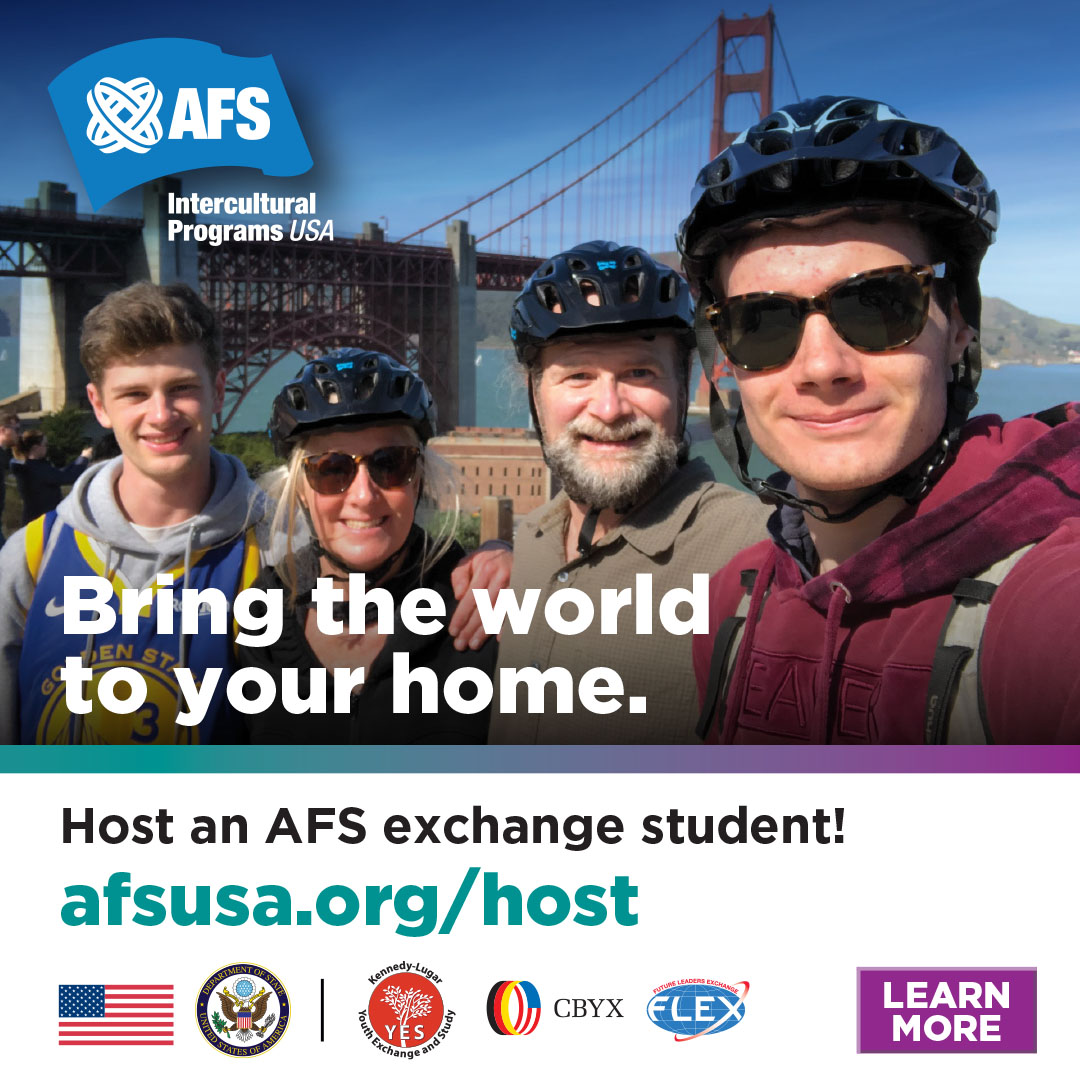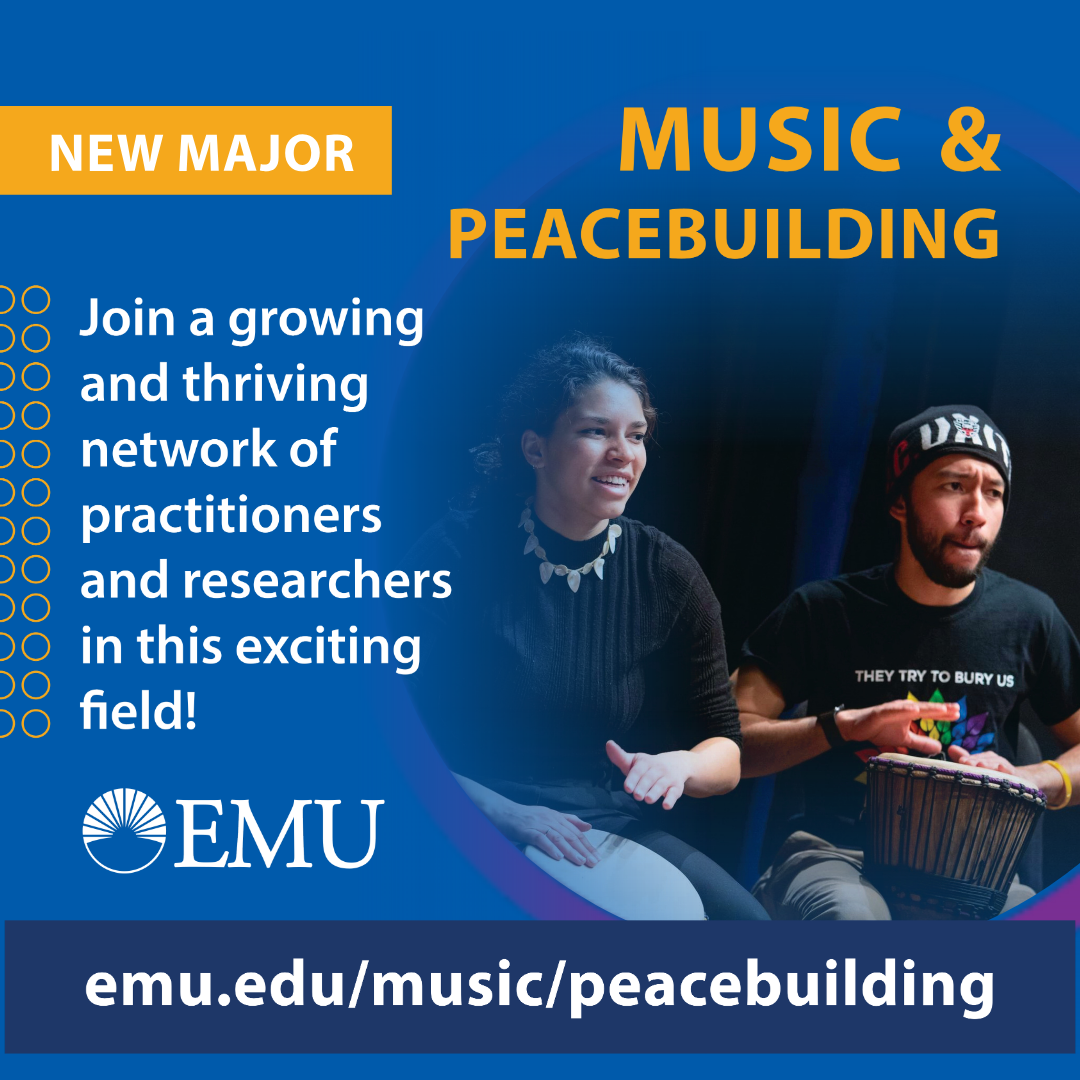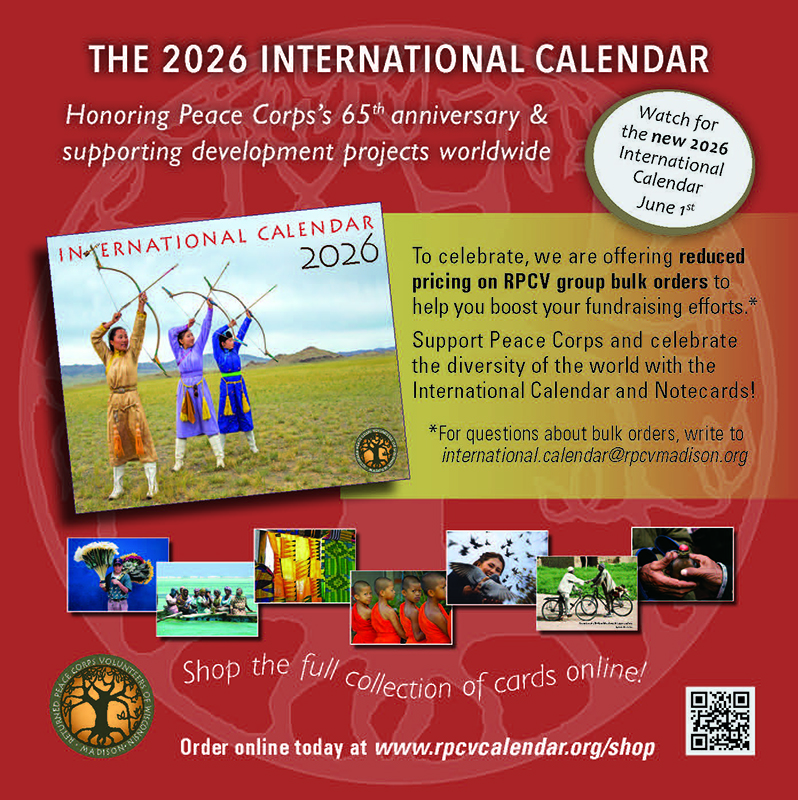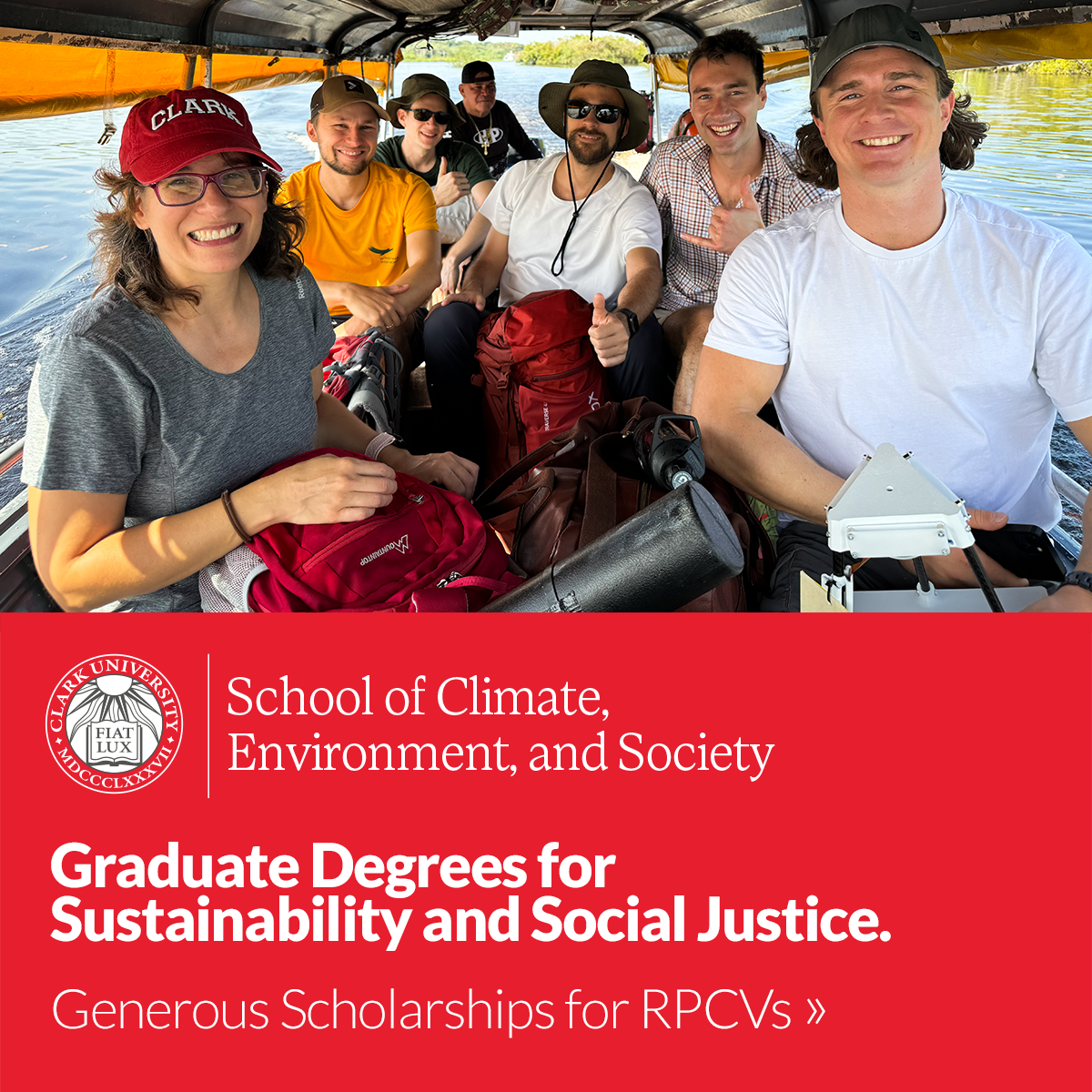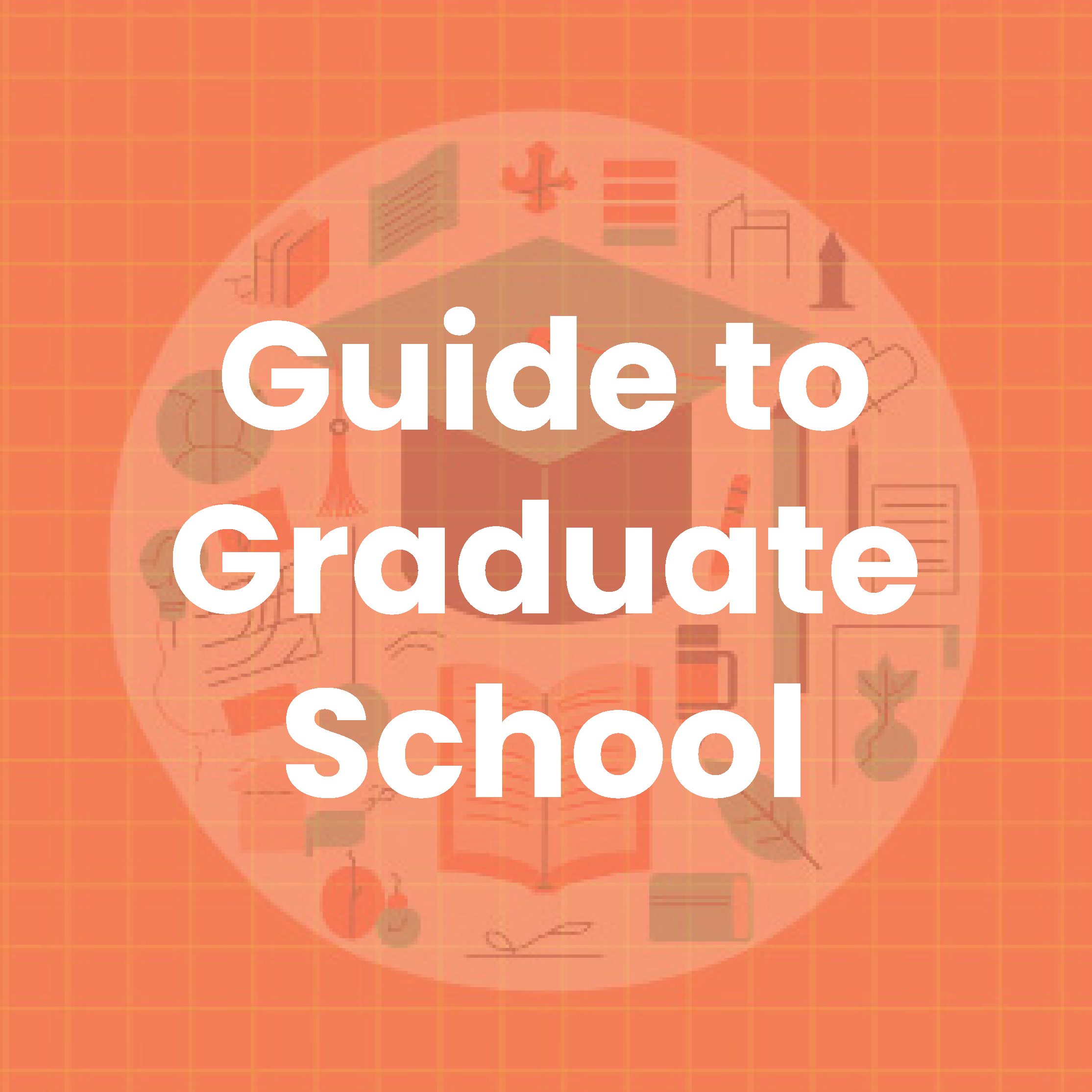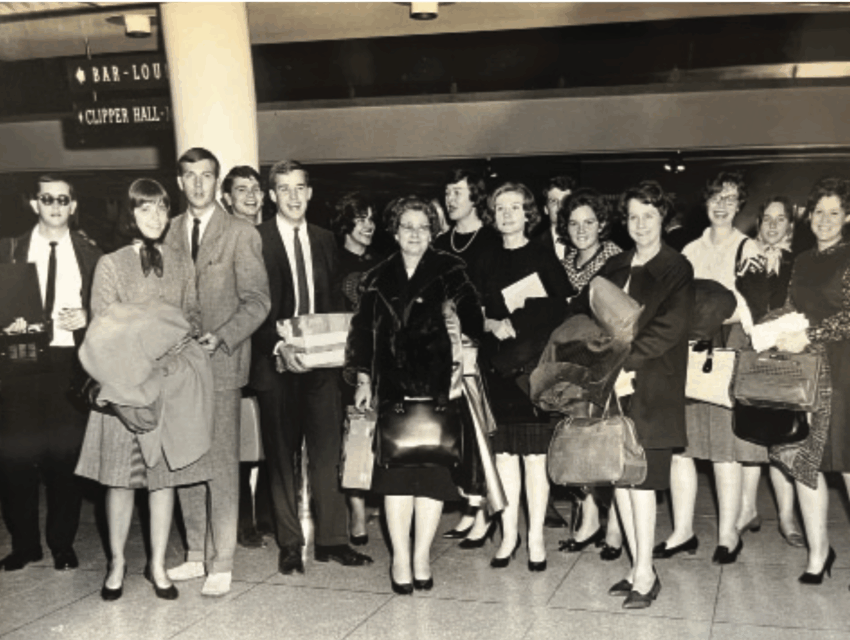
A Founding Father
How 92-year-old Chuck Laskey’s long career at CARE helped give the early Peace Corps lift-off
At 92 years old, Chuck Laskey embodies a rare spirit of dedication and adventure. As a former Peace Corps Volunteer and international relief worker, Laskey spent over three decades traveling the world, helping those in need, and experiencing the beauty of cultures across continents. His story is one of courage, resilience, and an enduring commitment to humanity. It also exemplifies an often-overlooked early collaboration between the Peace Corps and the stalwart development agency CARE International (Cooperative for Assistance and Relief Everywhere), founded in 1945 to fight global poverty.
“When the Peace Corps emerged in 1961 as a government program, they were looking for ways to engage NGOs with lots of field experience for both training and early implementation, and what emerged in one such collaboration was called the Peace Corps CARE Program,” Laskey tells WorldView in a recent interview from his home in Colorado, where he lives independently. “The first country where this collaboration took place was Colombia, doing rural development. It turned out to be a tremendous success and very highly appreciated by [founding Peace Corps Director Sargent] Shriver and the whole early Peace Corps apparatus.”
Laskey’s journey began in the heart of Toledo, Ohio, where he grew up with an innate sense of adventure. As a young man, he pedaled out of Toledo at 18, aiming westward on a bicycle, determined to reach Denver. That journey would foreshadow a lifetime of exploration. Soon after, he was drafted into the army during the Korean War, but instead of the front lines, he found himself stationed in Germany. The experience broadened his worldview and fueled his desire to serve beyond borders.
After his army days, Laskey pursued an international studies degree from the Univer- sity of Denver, among the first graduates of its nascent program. His passion for global engagement led him to his future wife Sandy, who shared his dreams of helping those in need. Together, they joined the CARE Program in New York, ready to embark on their first overseas mission.
Lasky reminisces about those early days, especially his first interaction with the Peace Corps. “My first posting with CARE was in Turkey, and then Liberia. The Peace Corps was just getting started then and wasn’t quite up and running,” he says. “Had I been available at that time, I would have gotten involved.”
He would soon have that opportunity when CARE sent him back to Turkey.
“Turkey was fascinating,” he recalls. “We were lucky enough to help set up the Peace Corps program there.” Initially he managed a cohort of 50 Volunteers, but the number grew quickly, and soon Laskey was coordinating groups of 90 at a time. Laskey remembers each Volunteer by name.
“I was responsible for managing the entire program,” he says. Although funded by the Peace Corps, the agency relied on his team to arrange living sites, integrate Volunteers into the community, and ensure their safety. They faced challenges daily, from answering locals’ questions about the presence of Peace Corps, especially in an Islamic country with many cultural sensitivities, to ensuring Volunteers felt a sense of belonging and purpose. “That was very, very touchy business,” he recalls.
The work itself was as diverse as it was demanding. “They did a mix of educational and agricultural work,” Laskey explains. “They built relationships with village leaders and learned about government programs to assist with local projects. These connections often brought help to the villagers that they couldn’t otherwise access.
After Turkey, Laskey’s journey took him to Afghanistan, where he would spend four impactful years working with Peace Corps and CARE. Here, he was assigned to work in a medical program, where his team became like family to him. “I loved those years,” he shares. “My wife was a wonderful hostess. We played sort of like a mother and father at home, because if Volunteers were having trouble, we oftentimes had them come and stay at our house to help give them a sense
I had to be evacuated from Vietnam and Somalia. I’ve been in three different countries where the governments have been overthrown. Wow, but I got to know people who I would never have gotten to know in the world had I stayed home.
of family, and we could work with them psychologically to help them overcome some difficulties,” he says. His team’s work made a meaningful difference, building health initiatives that directly impacted communities.
After his time in Afghanistan, Laskey returned to the U.S. as a regional Peace Corps director, yet the pull of international service with CARE called him back to the field. Soon he was traveling again, this time to Southeast Asia, where his assignments included the Philippines and Vietnam, which was embroiled in war and nearing the U.S. withdrawal. There he was given the harrow- ing task of managing the evacuation of his staff. “We left by helicopter on the last day,” he recalls, remembering the tension and gravity of that mission. Similar scenarios would unfold later in his career, including the evacuation of a team from Somalia as the nation faced civil conflict.
Laskey’s life on the move continued to shape him. He returned to Turkey for a third time, drawn back by a profound connection to the country. Across every assignment, Laskey witnessed history as governments changed, peace teetered, and people’s lives were impacted by global events. Through it all, he maintained contact with his inter- national family of friends and colleagues, each bond a testament to his warmth and compassion.
Reflecting on his 32-year career, Laskey is filled with gratitude. “I got to see the world,” he says, “and I had my wonderful wife beside me through it all.” As a retiree, he has continued to stay active in international programs, his legacy of service far from over.
For the younger generation considering the Peace Corps, Laskey has a message. “You have to have confidence in yourself and enjoy what you do,” he advises. “Meeting people and connecting across cultures is key in this work. Patience, humor, and a sense of adventure are essential. Every experience is an opportunity you won’t find by staying at home.”
For Laskey, a life well-lived means leaving the world better than he found it.
“I’m 92 years old now, and I still stay in contact with a lot of it. As I look back at it, I ask myself, ‘Well, you know, was it hard out there?’ Yeah, sure. There was a lot of hardship. I had to be evacuated from Vietnam and Somalia. I’ve been in three different countries where the governments have been overthrown. Wow, but I got to know people who I would never have gotten to know in the world had I stayed home. I have nothing to complain about in my life. And I had the most wonderful partner in my wife you could possibly look for.”
One last piece of advice from Laskey? Don’t drink the water. “Living overseas, I’ve always told people I don’t drink very much water. Why? Because the water wasn’t very healthy,” he said. “So I drank a hell of a lot of beer and wine.” Perhaps that’s the key to Laskey’s longevity.
Related Articles
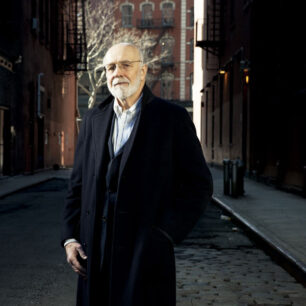
Made in America
Charlie Clifford (Peru 1967–69) is the founder of Tumi Inc., a global travel luggage brand, as well as Roam Luggage.…
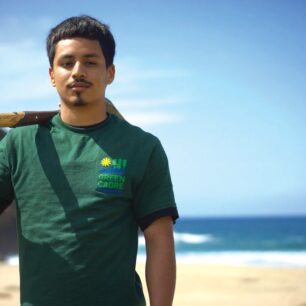
“Bigger Than Peace Corps”
California Service Corps is the largest state-based service program in the U.S. , with more than 10,000 volunteers across the…
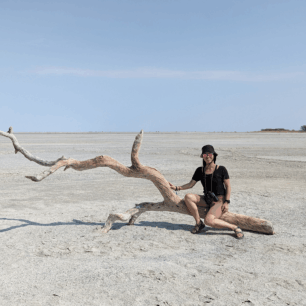
Signal Boost
The digital world is awash in voices seeking monetary reward or improved social status, as the online acronym goes, IRL…
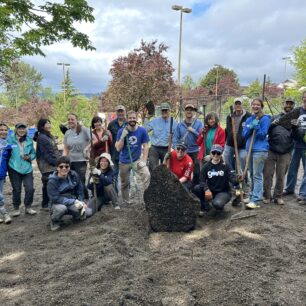
Garden of Refuge
As part of our commitment to continued service, the Seattle Peace Corps Association (SEAPAX) is partnering with World Relief Western…

